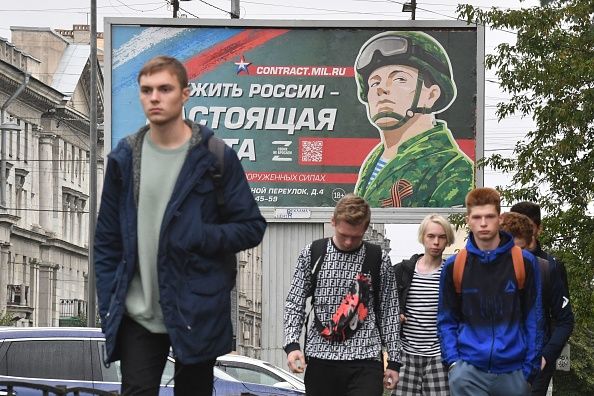Russian Interior Ministry prepares draft law requiring foreign visitors to sign 'loyalty agreement'

The Russian Interior Ministry has developed a draft law that would require all foreign visitors to sign a "loyalty agreement" forbidding them from saying anything deemed as being anti-Russia while visiting the country, the Russian state news agency TASS said on Nov. 29.
The proposed law, which was seen by TASS correspondents, would prohibit “hindering the activities of Russian public authorities” as well as “discrediting the external and internal state policies of Russia, public bodies, and their officials in any form.”
In addition, it would ban foreigners in Russia from “abusing the right to freedom of information,” which specifically includes spreading information that runs counter to “constitutionally significant moral values,” such as “propaganda of non-traditional sexual relations and distortion of the historical truth” of the Soviet Union's “contribution to (the) victory over fascism.”
The Russian government has leaned heavily into ostensibly protecting its "traditional values," especially against the supposed threat of LGBT rights. Russia has also weaponized history, particularly that of the Soviet Union's victory against Nazi Germany, and sought to portray current perceived opponents of Russia as being aligned with Nazism.
The bill is being prepared, and it is unclear if it will be formally submitted to Russia's parliament. The proposed penalties for violating the terms of the "loyalty agreement" were not specified.
Representatives from the ministry and the parliament did not respond to requests for comment on the draft law from Reuters.
The proposed law comes ahead of the upcoming Russian presidential election, which is scheduled to be held in March 2024. Although Russian dictator Vladimir Putin has yet to officially announce he is seeking reelection, it is widely expected that he will do so.
It is unclear if other candidates will nominally participate, but if Putin decides to run, his victory is all but assured.
In March 2022, Russia passed sweeping censorship laws that heavily restricted the ability of Russians (and those in Russian-occupied parts of Ukraine) to criticize the war.
The scope of what can be considered a criticism of the war or regime is quite broad, as Russians were arrested for simply holding up a blank sheet of paper or playing a Ukrainian song in public.
One year later, in March 2023, Russia strengthened laws against "discrediting" the war and increased their punishments.
The new punishments include a fine of up to 5 million rubles (about $66,450) and a sentence of up to 15 years in prison.













